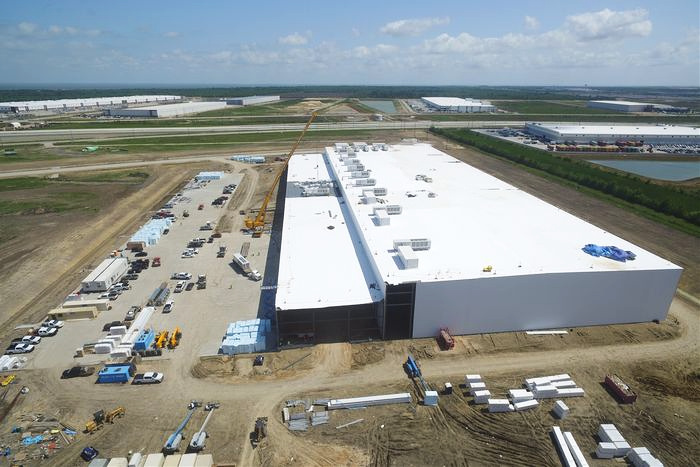Cold storage commercial buildings play a crucial role in preserving and storing temperature-sensitive products, such as food, pharmaceuticals, and chemicals. The roofing experts at CP Rankin understand that these facilities require roofing systems that can withstand extreme temperature variations, high humidity levels, and the weight of snow and ice. In this blog post, we will explore the unique roofing needs of cold storage commercial buildings and discuss the best roofing solutions to ensure the integrity of these structures.
Insulation and Thermal Efficiency
One of the primary considerations in cold storage buildings is maintaining a consistently low temperature. The roofing system must provide effective insulation to reduce heat transfer from the outside environment. Insulated metal panels (IMPs) are a popular choice for cold storage roofing, as they provide excellent thermal efficiency. These panels consist of a layer of insulation between two metal sheets, creating a barrier that minimizes heat exchange, ultimately reducing energy costs.
“When you look at the interface between the steel deck and an insulated metal wall panel, you have to make sure that you are sealing that intersection,” Kristin Westover, GAF Technical Manager of Specialty Installations, explains. “In a typical building, you would just lay down the insulation and call it a day. In a cold storage facility, closed cell spray foam should be installed along the deck to wall interface as well as at penetration perimeters. We want to make sure that all details are sealed to prevent air leakage.”
Moisture Management
The constant freezing and thawing cycles in cold storage buildings can lead to the formation of condensation. Roofing systems must have robust moisture management features to prevent moisture from damaging the building’s structure and the stored products. Proper ventilation and vapor barriers are essential components of a cold storage roofing system to control humidity and condensation.
“We know that condensation occurs when warm humid air meets a cold surface, that’s when it forms water on a surface,” says Westover. “When that happens in a cold storage facility, it is detrimental because that water will likely turn to ice. Ice may form at the underside of the roof deck, within the roof assembly, or on floor surfaces.”
Load-Bearing Capacity
Roofs in cold storage buildings need to bear substantial loads, including snow and ice during the winter months. It’s essential to select roofing materials that can withstand these weight demands. Structural insulated panels (SIPs) are known for their load-bearing capacity, making them an ideal choice for cold storage roofing. SIPs consist of foam insulation sandwiched between two structural facings, ensuring both strength and thermal efficiency.
Proper Drainage
Roof drainage is a critical aspect of a cold storage building. Efficient drainage systems help prevent the buildup of ice and snow on the roof, reducing the risk of leaks and structural damage. Sloped roofing designs combined with well-placed drains and gutter systems can ensure that water and snow are directed away from the building.
Temperature Control
Maintaining temperature control within the cold storage facility is of paramount importance. Cool roofs, which are designed to reflect sunlight and absorb less heat, can help regulate the temperature inside the building. This reduces the strain on cooling systems and lowers energy consumption. Having the correct design will help maintain a temperature-controlled environment with a focus on moisture management.
The roofing needs of cold storage commercial buildings are distinct due to the stringent requirements for temperature control, moisture management, load-bearing capacity, and durability. By selecting the right roofing materials and designs, building owners can ensure that their facilities function efficiently and protect valuable products effectively. Prioritizing insulation, moisture control, drainage, and energy efficiency will go a long way in maintaining the integrity of cold storage buildings while optimizing their operational costs and environmental impact.
Not all roofing contractors have the knowledge and experience required to address the unique needs and challenges of a cold storage facility. If you see ice forming inside your cold storage building or you notice that the mechanical system isn’t operating as efficiently as it should, it’s crucial to have your roofing system inspected by a qualified specialty roofing contractor. Luckily, CP Rankin is only a phone call (or a click) away. 866-ROOF-322


